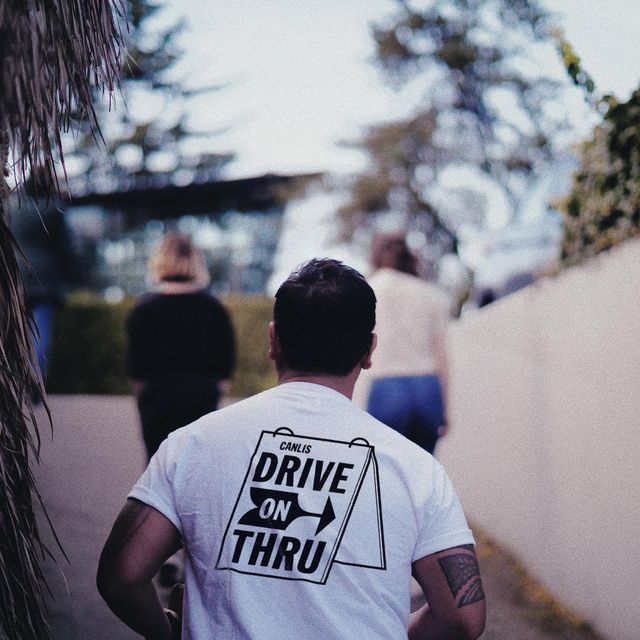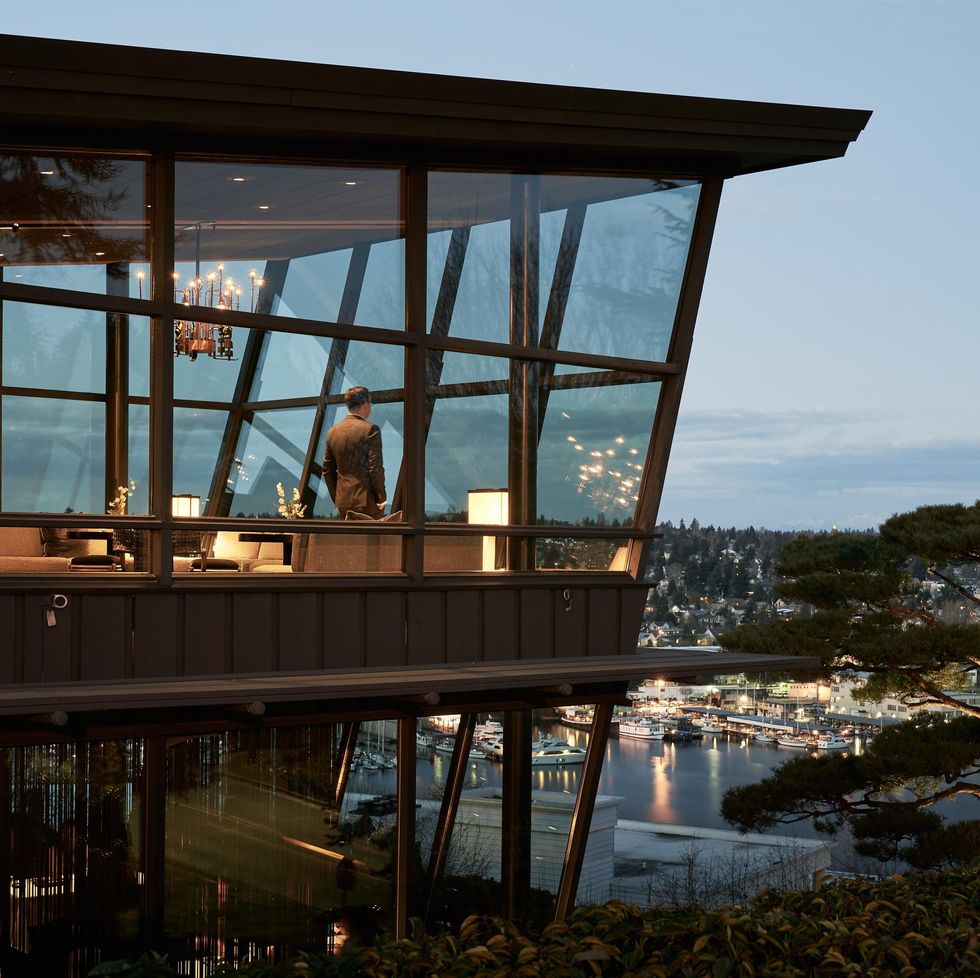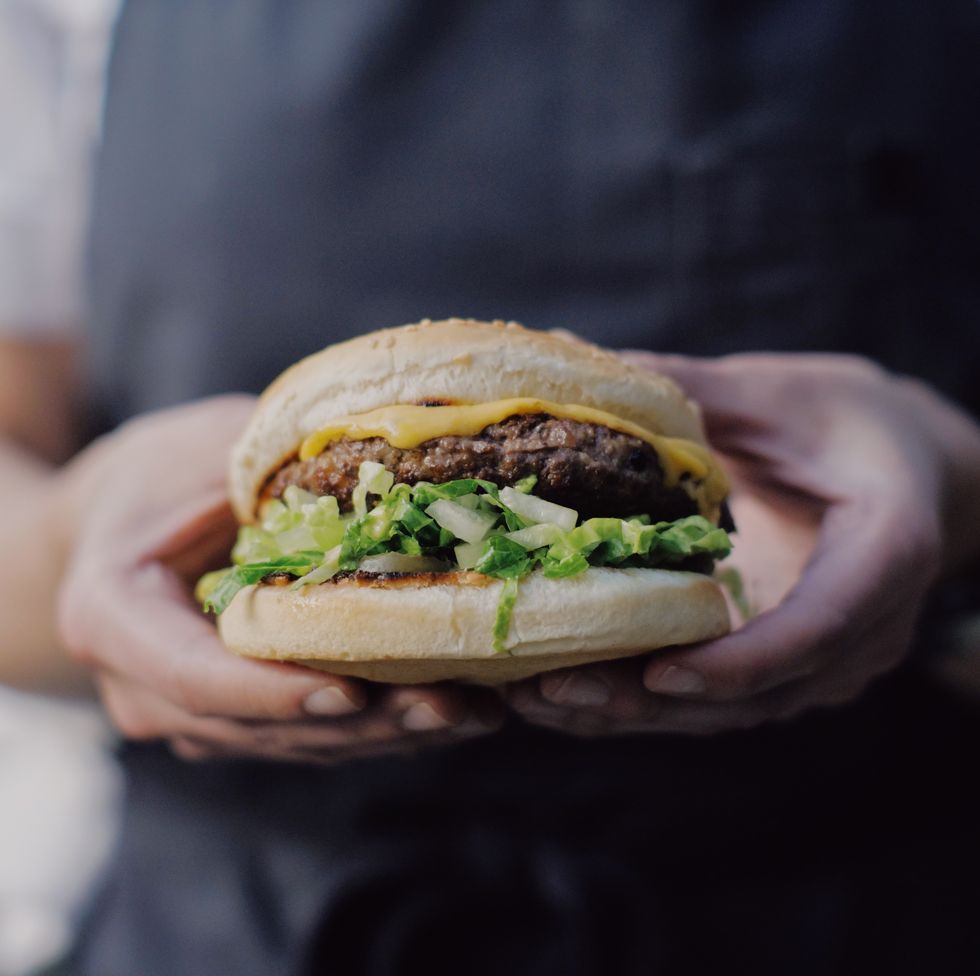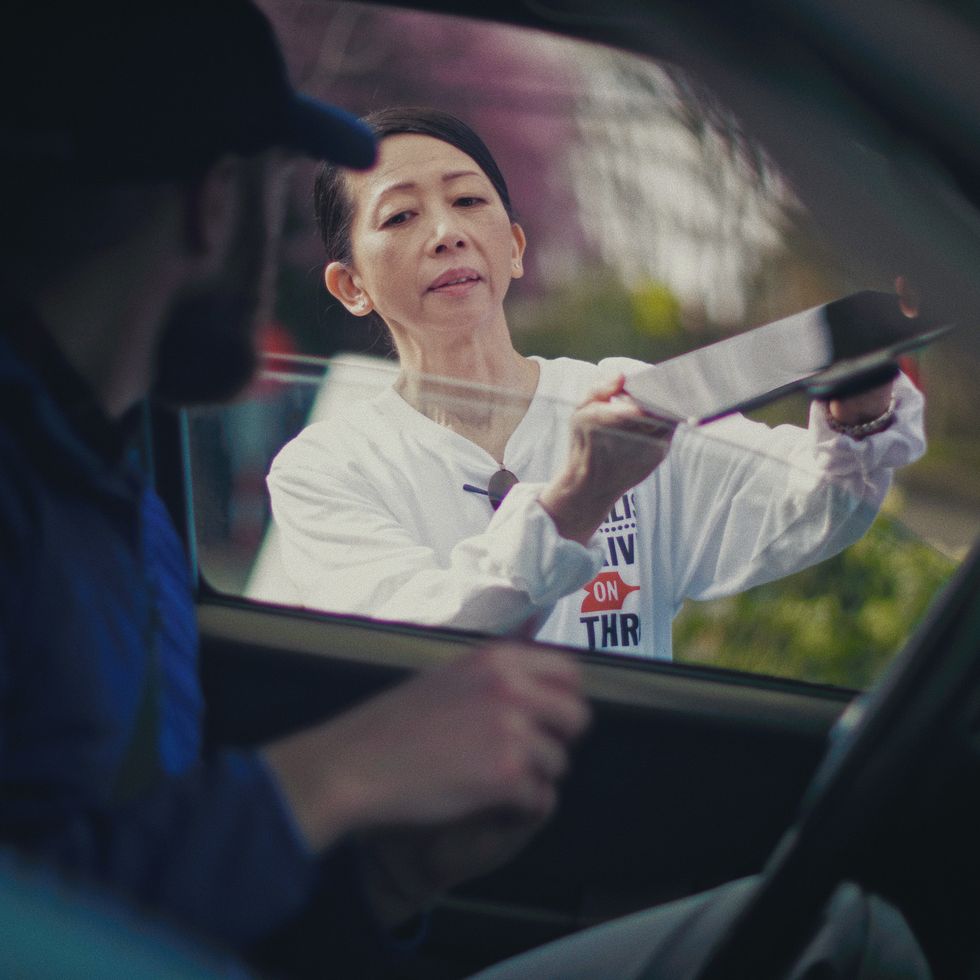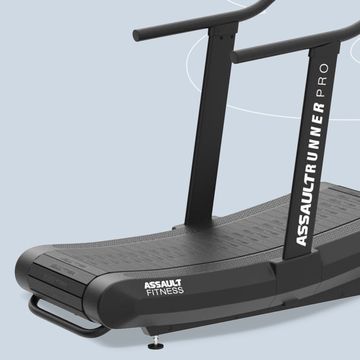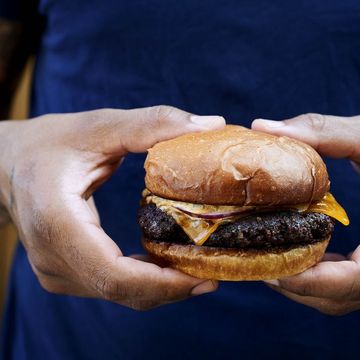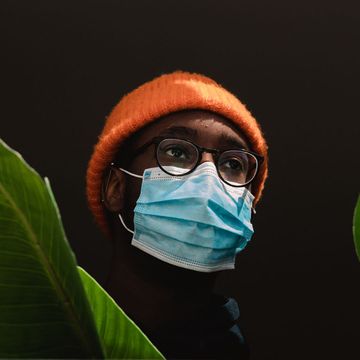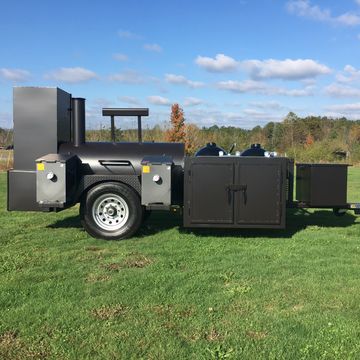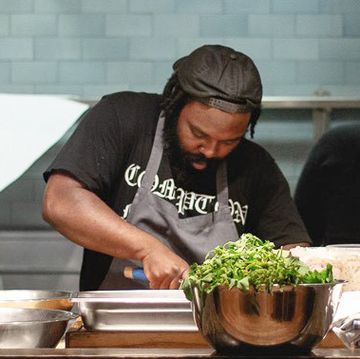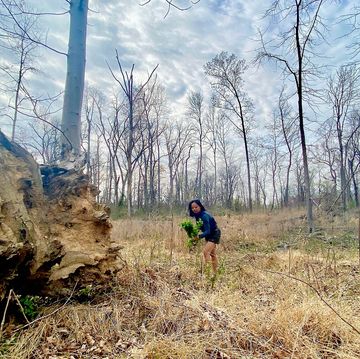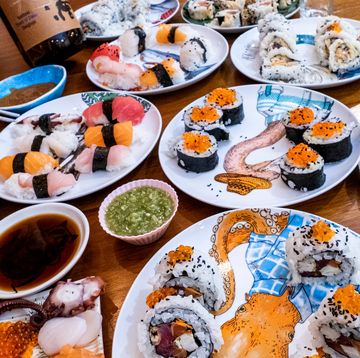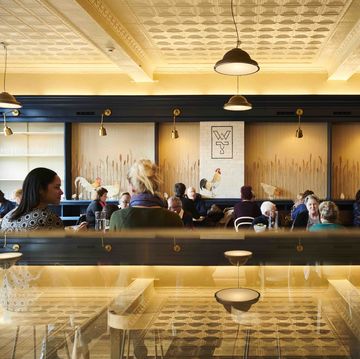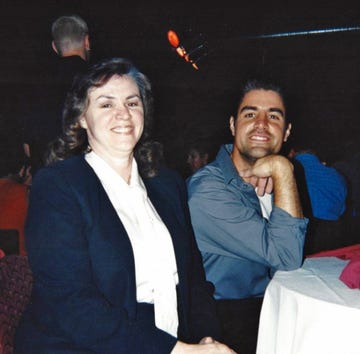First of all, you need to understand what Canlis is, or what it has been.
Canlis is a Seattle restaurant that has, for 70 years, reached toward the sky in its perch overlooking Lake Union, like a cool modernist spaceship in an outtake from The Man Who Fell to Earth. For decades, the place has been a pioneer in the extravagances of American fine dining and the subtleties of clairvoyant hospitality. I mean, it serves one of the most famous salads in the world. If you happened to grow up in the Pacific Northwest, you probably heard about Canlis—or maybe you even got a chance to experience it once or twice—as the epitome of a fancy night out.
Right now, Canlis is basically a burger stand.
Way back in January, Washington state suffered the first confirmed case of coronavirus in the U.S. By the end of February, the Seattle area had seen the first death from the virus on our shores, and many more began to follow. These tragedies meant that the city had a head start in accepting the brutal realities of the pandemic. "Look, it’s not like it snuck up on anyone," says Mark Canlis, one of the two brothers who have kept the family business humming for three generations.
Watching it unfold, the Canlis team held brainstorming meetings. "We said, 'Clearly, the rules of the game have changed,'" Mark goes on. "'Have we changed?'"
The answer was obviously no. So Canlis and its 115 employees pivoted in a radical way. "What if we start from scratch?" chef Brady Williams remembers asking. "The writing was on the wall. Seattle was the first major American city to get hit. Was there something we could do to at least mitigate risk?" Hoping to stave off a total shut-down, and mindful of keeping staffers healthy in a business that involves interacting with customers and picking up dirty napkins and forks and plates, these West Coast innovators abandoned fine dining and morphed into a thoroughly different enterprise.
And Team Canlis did so in a way that has become a possible model for the thousands of American restaurants that are suddenly struggling to stay alive, now that a handful of states (so far) have forced them to rely on take-out and delivery as primary—and frankly, limited—sources of revenue.
It's scorched earth out there; thousands of restaurant workers have lost their jobs more or less overnight. Without government intervention to save them, many restaurants won’t make it. Although many casual-ish restaurants around the nation have pivoted to offering take-out—like Voyager in the Detroit area, Pizzana and Bäco Mercat in Southern California, the Whale Wins in Seattle, the Dabney in Washington D.C., Grand Café in Minneapolis, and spots like Da Toscano and Red Hook Tavern in New York—most of the toniest fine-dining establishments have opted to shut down altogether, at least temporarily. Those include Le Bernardin and Eleven Madison Park in New York, and Providence in Los Angeles. Dominique Crenn, the bearer of three Michelin stars for her Atelier Crenn in San Francisco, is developing plant-based meal kits. There are few other options.
In the mornings, Seattle's Canlis is now a bagel shed, serving up freshly baked bagels and breakfast sandwiches. It turned out that one of the expediters in the Canlis kitchen, Melissa Johnson-Feit, had previous experience as a baker in New York City’s East Village, so she was put in charge of the ovens. On a recent morning, Canlis sold out of nearly 500 bagels in 90 minutes.
From eleven in the morning until six each evening, Canlis is a drive-through burger spot. People can pull up alongside the restaurant and, with minimal contact, pick up items like bacon cheeseburgers, ice-cream sandwiches, and that famous Canlis salad to go. On Monday alone, Canlis served those items to more than 1,000 people.
Meanwhile, Williams and his kitchen crew are mapping out an approach to deliveries. They’re not going to offer the entire menu—that’s too complicated. "Every day it’s gonna be one thing," Williams says. Maybe it’s cassoulet on Tuesday, rabbit pot pie on Wednesday, prime rib on Friday. "We’re just doing one thing really well." With local farms struggling to sell their produce, Williams and the Canlis brothers are also working on hatching a community-supported agriculture program to help deliver farm-fresh fruit and vegetables and herbs and meat directly to customers who are stuck at home trying to figure out what to cook.
"Local farms and purveyors are really hurting right now," Williams says. "I’ve spent years developing these relationships. I feel deeply committed to them."
So far, miraculously, Canlis hasn’t laid anyone off. "In fact, we’re seriously considering hiring people," Mark says. Those 115 employees are doing different jobs, yes, but as of now, they still have jobs. No, Williams is not cooking the chawanmushi with mushrooms and geoduck, or the haiga rice with Dungeness crab and hazelnuts that helped him get selected as one of Food & Wine’s best new chefs in America in 2018, but he’s grateful to be cooking at all. "What I love to do is to feed people," he says. "There’s no ego in that."
If, a decade or so ago, American banks were said to be too big to fail, you might say that Canlis is too beautiful to fail. And if cheeseburgers and bagels keep it kicking through its seventieth year of operation, Mark Canlis doesn’t mind. "The whole idea is just to keep food flowing," he says. "That’s what all of us need to be doing. Our hope is to be an example of how to creatively do that. We’re at war. It will be a test of our mettle."
How long can the experiment last? "We’ll go until they make us shut down or it’s not safe to operate," he says. "You may not know, but we were military—just as many years of family history in the armed services as in restaurants. There is no quit in this."
As for the legacy of fine dining in a Seattle landmark? "Here’s what everyone forgets about fine dining," Mark says. "Fine dining is the most considered form of caring about people with food. That’s all it is." And when the style of caring shifts, you need to shift with it.
"This," he says, "is the most Canlis we’ve ever been."
